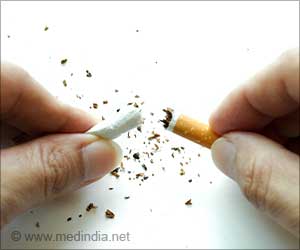New study shows that people, who had started drinking alcohol before the age of 14, are more likely to develop into alcoholics and also develop a greater dependence on it.
Early alcohol drinkers, who begin before the age of 14 years are not only more likely to become alcoholics than those who stay away from alcohol until they're 21, but they also tend to develop dependence on alcohol faster, and face a longer struggle with alcohol throughout their lives.
The study's lead author, Dr Ralph W Hingson of the Boston University School of Public Health's Youth Alcohol Prevention Centre said that while people could recover from such a problem they are generally at a greater lifelong peril especially if they develop dependence so quickly and early in life. The findings of the study have been reported in the July edition of the Archives of Paediatrics and Adolescent Medicine.Dr Hingson said, “It's not to say that people don't get over this, but ... they're at greater lifelong risk, particularly if they develop dependence so rapidly that they have it this early in life.” Dr Hingson and his team explained in their study there is growing evidence that people who start drinking early are more likely to become dependent on alcohol.
The researchers had analysed the results in a survey of 43,093 adults conducted by the National Institute on Alcohol Abuse and Alcoholism, in the year 2001-2002 so as to investigate whether they may also become alcohol dependent at a younger age. Their study found that about 47% of the people who had taken to drinking around the early age of 14 fulfilled the criteria for alcohol dependence within 10 years, as compared to 4% of those who had started later, by around he age of 21. The study also showed that 27% of the people who started drinking early were dependent on alcohol before the age of 25, compared to 4% of those who began drinking at 21.
The findings of the study highlighten the dangers of the early alcohol use, researchers also explained making an effort of rising the drinking age to 21, could reduce the rates of alcohol dependence. Dr Hingson said, “There are interventions that we know can make a difference.” He and his team explained that they believe in the importance of routinely asking adolescents their drinking practices by their health care providers.











